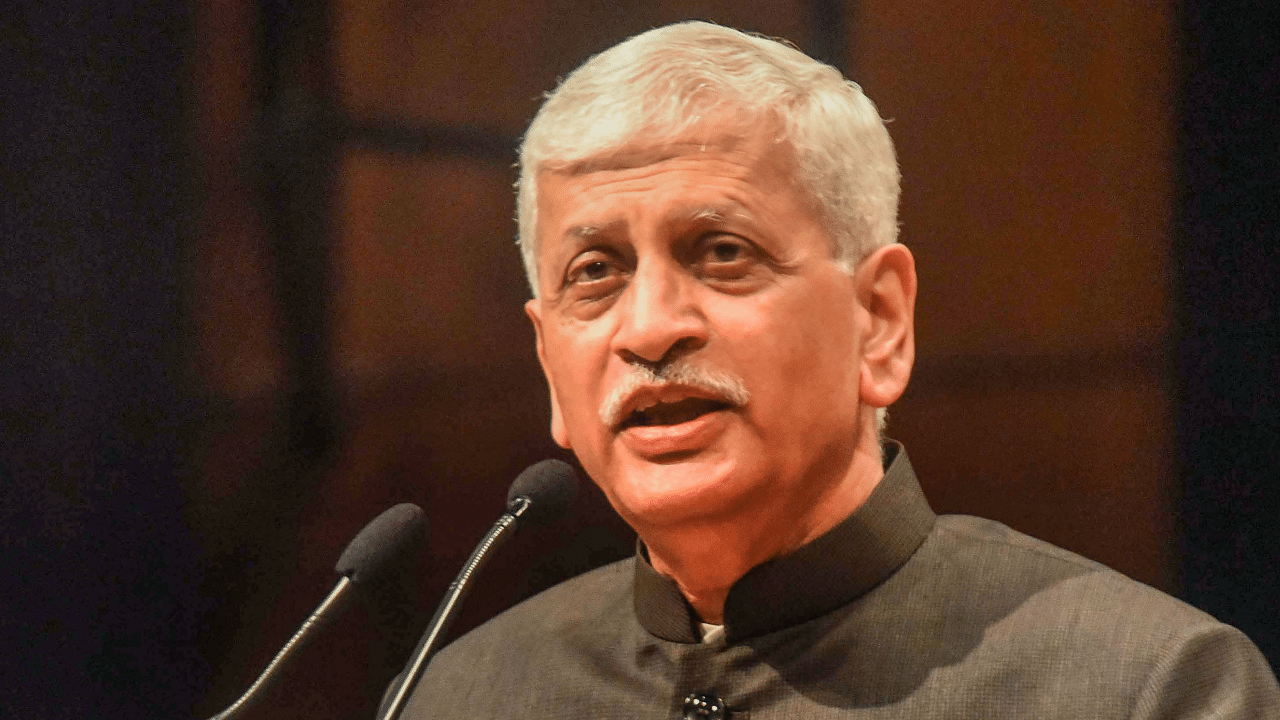
Maintaining that the collegium system for appointment of judges is here to stay, former Chief Justice India U U Lalit on Sunday said it is indispensable for the independence of judiciary and the rule of law.
Justice Lalit, who demitted office as the 49th CJI on November 9 after a brief tenure of 74 days, insisted that there are enough checks and balances in the Collegium system.
"In fact, the Supreme Court found the National Judicial Appointment Commission Act (passed by the previous Narendra Modi government) to be unconstitutional. If the government attempts to bring in the NJAC again, that is their prerogative. But so long as that is not brought in, we will have to follow the established mechanism," he said while interacting with media persons at his residence here.
He said the Collegium system is perfect and does not require any fine-tuning.
Justice Lalit, however, agreed that the secretariat, established at Supreme Court as per the NJAC judgement, has to be made functional fully as it would bring in more accountability.
The Collegium comprises five senior-most judges of the Supreme Court which selects judges for appointment in the High Courts and the Supreme Court.
Law Minister Kiren Rijiju has recently criticised the Collegium system terming it opaque. He also said judges spent half of their time deciding who is to be appointed as judges, instead of delivering justice.
Responding to the comments, Justice Lalit said the Collegium system is as of now an established norm after the judicial approval by the Constitution benches. His (Minister's) comments are his personal opinion, he said.
"The Collegium system is foolproof. There are enough checks and balances. Collegium judges selecting a judge is often from other states and thus there is a check. Then there is Intelligence Bureau reports and the SC collegium looks at it," he said.
"The Chief Justice coming from outside is the best guarantee since he will only see talent in the High Court. That is why Chief Justices in HC are from outside the states," he added.
The former CJI also explained that all Collegium members had a say and input in the appointment process. "It was because of this, we appointed almost 250 judges in the Collegium headed by (his predecessor) CJI N V Ramana. Figures speak for themselves," he said.
Justice Lalit also said he had no disappointment from not being able to appoint a single judge to the Supreme Court. The recommendation made by the Collegium to elevate Bombay High Court's Chief Justice Dipankar Dutta in September still remained pending with the Union government. Justice Lalit's bid to further recommend four names for elevation to the top court could not fructify due to opposition to the process of circulation of names by two members of the Collegium namely Justices D Y Chandrachud and S Abdul Nazeer.
With regard to criticism on setting up a bench on Saturday, a court holiday, to take up an appeal against discharge of former DU Professor G N Saibaba in Maoist link case, the former CJI said he had formed the bench after a number of judges he spoke to personally were not available.
"I had told no judges as to what the case was and what relief was being sought. What social media is trying to project that it was well thought it is not at all so," he said, adding, "What happens before a particular bench is not in my control."
When quizzed on the uproar against the acquittal of three accused in 2012 Chhawla gang rape case, Justice Lalit said that it is only the evidence that matters before the court and nothing else. "We did not find material good enough to sustain the conviction,” he said.
